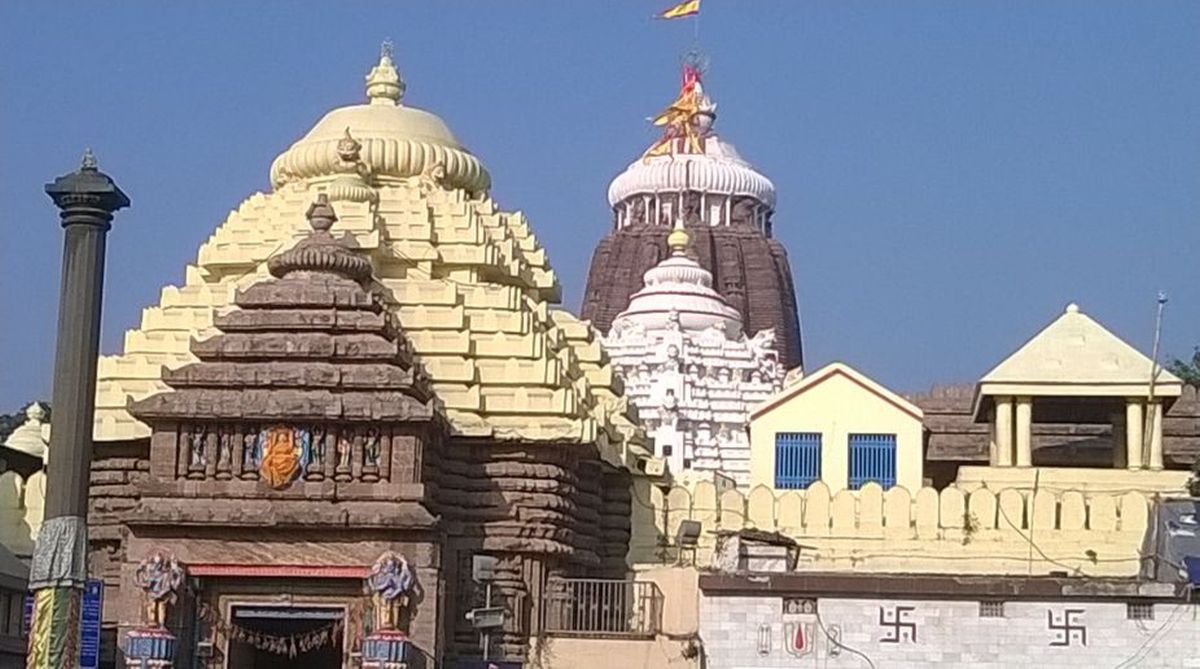Ahead of EVM-VVPAT verification case order, SC calls ECI officer to explain queries
The bench of Justices Sanjiv Khana and Dipankar Datta had last week reserved its verdict on a batch of public interest litigations in the matter.

Jagannath Temple Puri (Photo: Wikimedia Commons)
Decades after Indira Gandhi as Prime Minister was denied entry to the Jagannath temple in Puri, Thursday’s directive of the Supreme Court is concordant with the noblest traditions of secularism and richly deserves unqualified endorsement.
The judiciary has taken a while to react to the temple being kept out of bounds for the former Prime Minister, whose husband incidentally was a Parsi. This is a faint echo of the disconnect in predominantly Buddhist Myanmar where Aung San Suu Kyi has been denied the office of President because her husband was British. From Puri to Naypidaw, religion and nationality have been the determinants, rendering India’s secular construct open to question.
The apex judiciary is explicit on the imperative that the Temple Management Board must allow “people of other faiths to visit the shrine and worship the deity”. That said, the order, which is an essay towards ensuring an open sesame in the holy of holies, has been tempered with the provision that this is “subject to certain undertakings”.
Advertisement
It is pretty obvious that the court is anxious not to ruffle the feathers of the dominant priests and servitors, who have historically called the shots and now a week before Rathyatra when hundreds of thousands of the faithful visit the temple.
It is pretty obvious that the Supreme Court has effected a deft balancing act that will permit the temple authorities to introduce regulatory measures, notably a dress code and insist on a “declaration before making offerings to the deity.”
The order reinforces the court’s earlier judgment that “Hinduism as a religion incorporates all forms of belief without mandating the selection or elimination of any one single belief” (Adi Saiva Sivachariyargal and others versus the Government of Tamil Nadu, 2016).
Two years back, the court had underlined that Sanatan Dharma or “eternal faith is the collective wisdom that Hinduism seeks to preach and propagate”. Thus has the Bench underlined the country’s pluralist heritage. Yet Jagannath temple has buttressed its own agenda and to the exclusion of other faiths.
The court’s intervention is doubtless a watershed order when contextualised with the traditional stand of the temple authorities, notably that “only Hindus can enter”. Sad to reflect, the reported response of the temple’s chief administrator has been somewhat guarded ~ “We have enough time to examine the issues raised by the court,” was the reaction of Mr PK Mohapatra.
Far less guarded, indeed rather blunt, was the spin on the order accorded by the senior servitor, Jagannath Swain Mohapatra ~ “We cannot allow people of other faiths to enter the temple.” He has definitely been presumptuous with the remark that “once we open the gates of the shrine to people of other faiths, the Jagannath culture may get polluted.” It is fervently to be hoped that the road to the temple will not be impeded by an overdose of obscurantism.
Advertisement